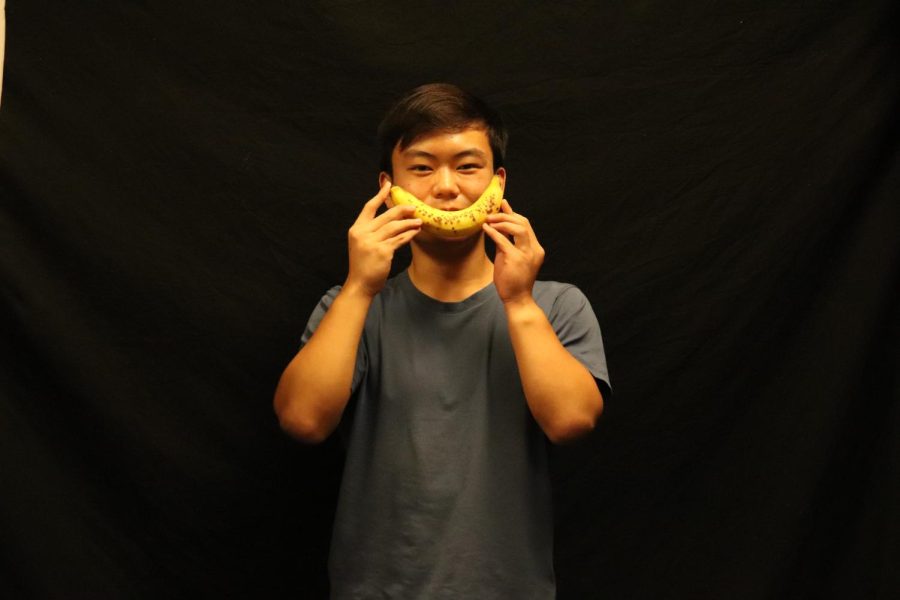How school fruit has me fullfilled
Larry holding up a banana he got from the lunch line’s unclaimed bin, his means of fighting Lynbrooks food waste epidemic
October 10, 2022
Abandoned and neglected in overflowing bins of grapes, baby carrots and raw broccoli bags, healthy snack options often sit untouched as students avoid the salad bar on their way out of the cafeteria during lunch. School fruit may repulse even the hungriest student, but not me. As a daily routine, I pile my paper plate with two bags of cranberries on one side, a bag of baby carrots and broccoli on the other and plop an apple down in the middle to balance the load. School fruit helps me power through an exhausting school day and fight Lynbrook’s food waste.
It is no wonder that school fruit goes unclaimed. The grapes are loaded with 10 grams of sugar a bag, the carrots are dry and the raw broccoli seems better suited for a horse, so bags of fruit and school lunches sit deserted on campus in the most desolate places. Parents frequently complain about the lengthy lines and how their children go hungry even when a surplus of fruit goes unclaimed in the cafeteria everyday, but for all its problems, school lunch is free, and for that I’m thankful.
For the longest time, I contributed to the school food waste epidemic. Whenever the friendly lunch cashier would insist on taking a fruit, I would begrudgingly oblige, only to throw it away the moment I escaped the cafeteria. My taste buds were like lavish kings, having sampled some of the finest delicacies and cuisines from all across the Bay Area. Contact with school fruit violated my taste buds’ dignity, and it took a global pandemic and lockdown to convince me otherwise.
My family’s luxurious meals spoiled me during the pandemic. Rich cooking and frequent take-out delivered the most scrumptious chow to my stomach. Returning to school snapped me back to reality as I found myself without a never-ending supply of food, unable to power through a school day on a slice of cheese pizza alone. So I looked outside the box and into the fruit bins. I plugged my nose while swallowing raw broccoli the first few times, but the alien tastes grew routine as they blended in.
Apart from filling my stomach, free school fruit has taught me a humbling lesson of gratitude. The abundance of free fruit mirrors the richness of resources at my disposal. Having lived in one of America’s most affluent regions all my life, I’m one of the few privileged to attend a California top 10 public high school, and I enjoy an exquisite education as a result. It may not feel this way when I’m bogged down by the pressure to succeed among a group of high-achieving peers, but this stress is a privilege in itself. It breeds entitled complaints about doing poorly on my Spanish test while disadvantaged students elsewhere would scoff at my worries.
Like the parents and students who complain about school food but disregard the fruit, I ignore the fact that my problems are largely self-inflicted. Yet just as I cannot ignore the hunter that eats at me in the middle of the school day, I can’t disregard my mental health. Slowly but surely, I’m beginning to make changes. A minute of quiet mindfulness here and there. A late night stroll. Rebinging my favorite shows. I’ve learned to settle for free school fruit once more, occasionally letting life breeze by.
At a school like Lynbrook, it’s easy to get caught in our torrent of resources, which is why we should appreciate all the little things that make life worth living, such as school fruit.




























































